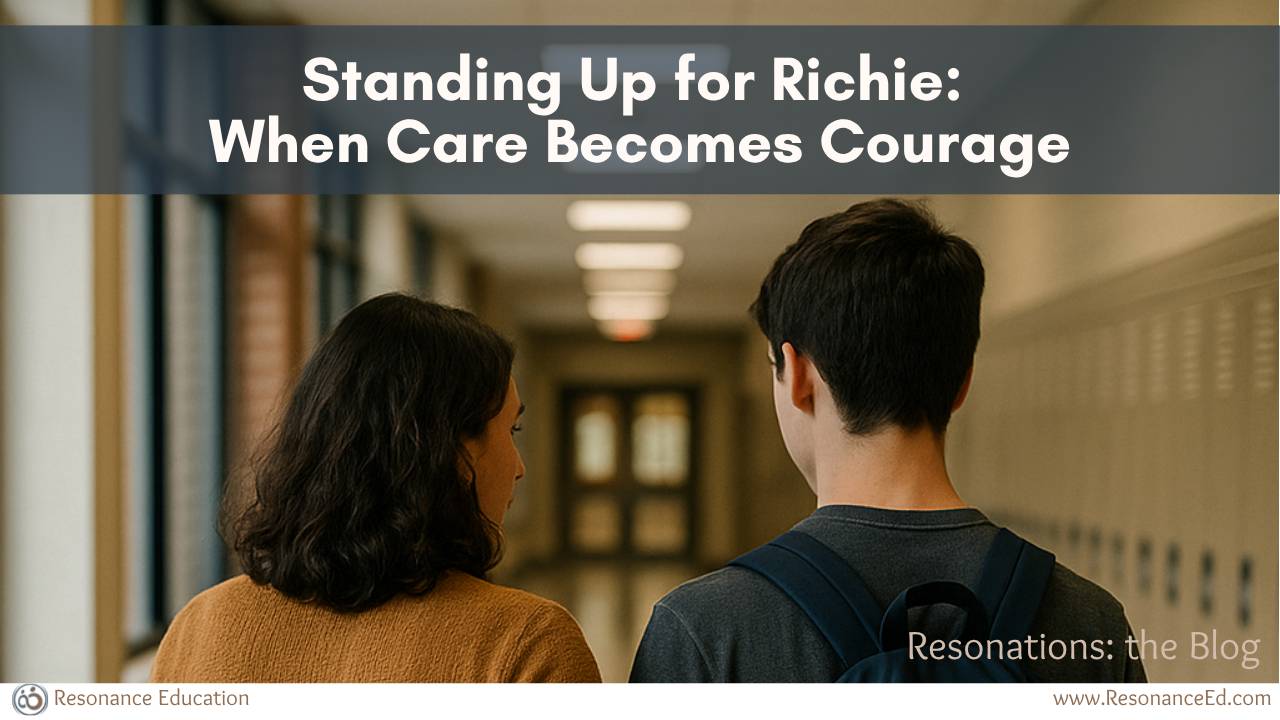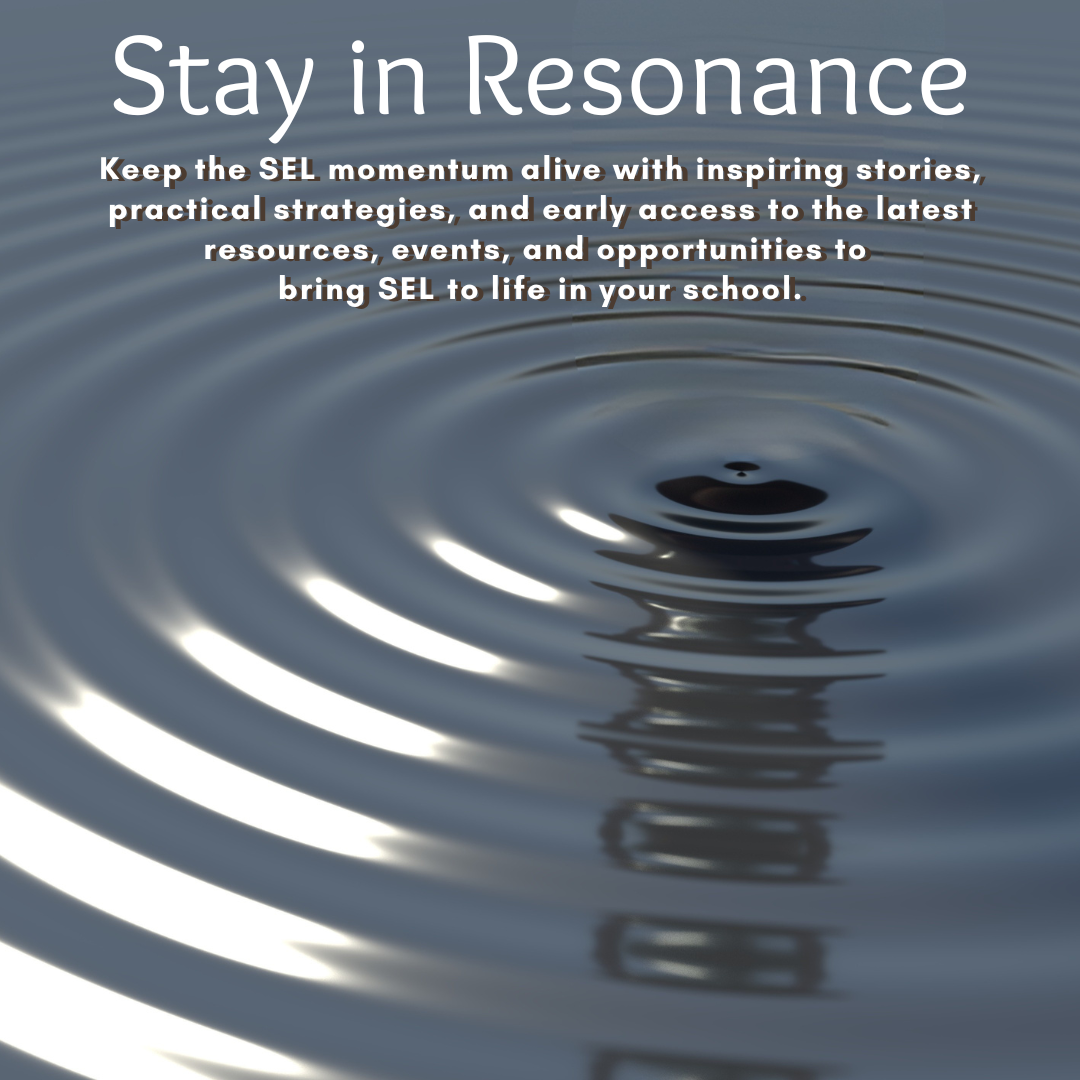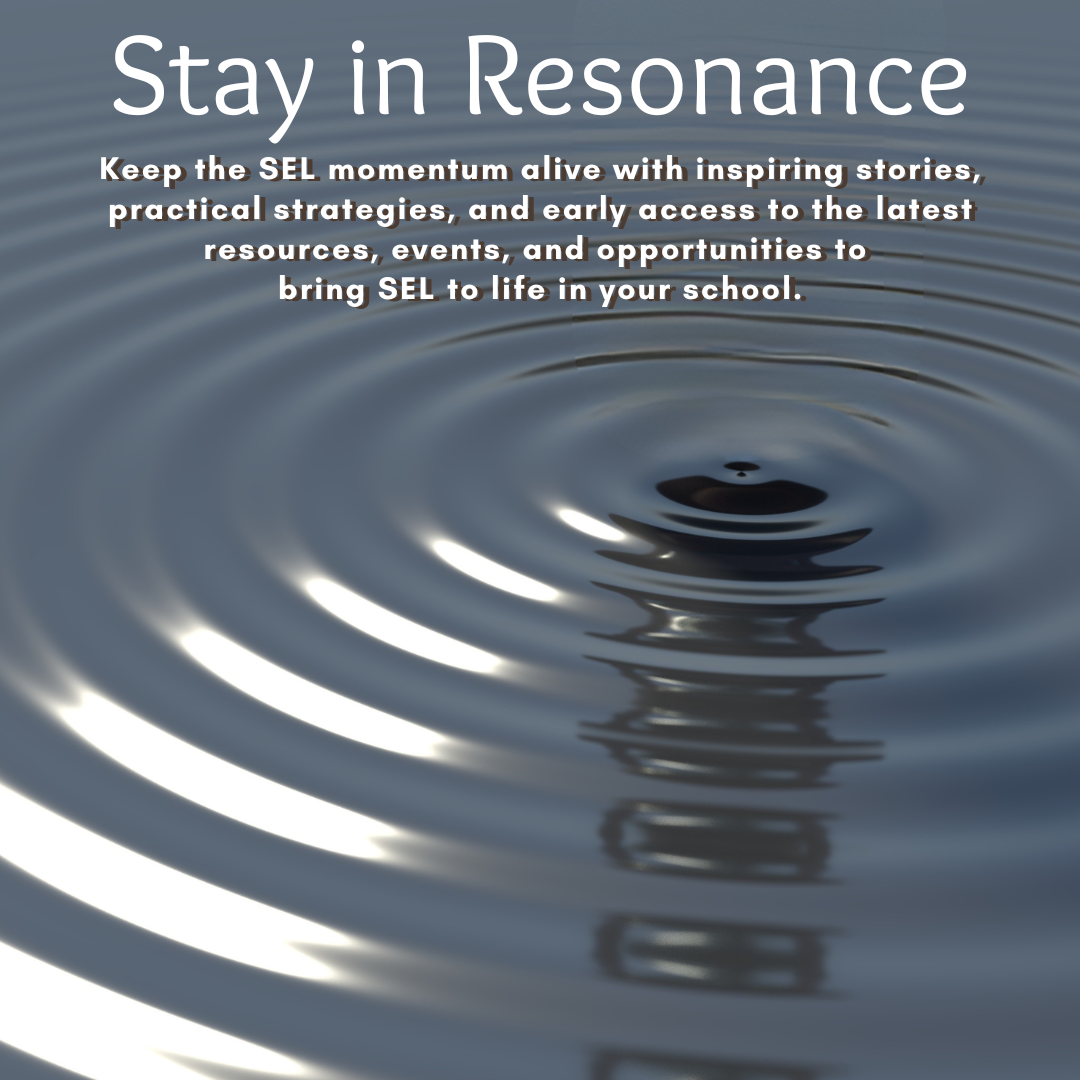Standing Up for Richie: When Care Becomes Courage
Oct 28, 2025
I still remember the day we sat around the rectangular-shaped table in the conference room after school ended.
Richie wasn’t there, but his parents were.
So were several teachers, his school counselor, and an administrator.
He was considering a return to school after months of chemotherapy. He had lost his writing arm to amputation. But he was determined to walk across the graduation stage with his friends.
When it was my turn to speak, I shared that Richie was on track to pass social studies. He was receiving homebound instruction from a colleague who taught the same course, and I was sending weekly assignments to ensure continuity.
Richie was actually repeating this class after failing it the year before, with me as his teacher. It hadn’t been a matter of ability; he simply hadn’t engaged or studied for tests. But this year was different. He had been fully present, completing assignments with effort and consistency before his health declined.
Then, a teacher across the table (someone I had once admired as my own high school teacher) leaned back and said, “How could he be passing your class? He doesn’t do anything in mine.” He wanted Richie to complete the 15-page research paper that the other students were required to write to pass his class.
The words landed like a slap.
Not just because they were dismissive, but because they lacked empathy for what this young man had endured.
I stayed quiet in the meeting. But later that afternoon, I found my courage.
I emailed him: “I’d really like to talk with you about today’s meeting.”
The Conversation
The next day, I walked into his classroom, heart pounding. I told him that his comment had been hurtful… both to me and, more importantly, to the spirit of what we’re here to do as educators.
Richie’s story wasn’t about lowered standards. It was about context, humanity, and care.
Yes, high expectations matter. But so does understanding when life demands flexibility.
We talked for a while. I wanted to understand his perspective and to share mine.
He didn’t change his stance. I left knowing the outcome for Richie’s class might not shift.
But I also knew something had shifted in me.
I had found my voice as an advocate.
The SEL Connection
Advocacy lives at the intersection of self-awareness, social awareness, and responsible decision-making. It means noticing when something doesn’t feel right, understanding why it matters, and taking thoughtful action, even when it’s incredibly uncomfortable.
It’s easy to confuse equality with equity.
Holding the same standard for every student might feel “fair,” but fairness isn’t sameness. Equity recognizes unique circumstances and meets students where they are without sacrificing care or accountability.
Why This Matters
Advocacy is not always dramatic. Sometimes, it’s a quiet conversation after a meeting.
Sometimes, it’s helping a student finish a paper one sentence at a time.
And sometimes, it’s simply refusing to let silence stand in the way of compassion.
The older I get, the more I realize: Advocacy is an act of love.
It asks us to use our voice when others can’t.
It asks us to choose courage over comfort.
And it reminds us that education isn’t just about the standards we uphold; it’s about the humanity we nurture.
The Outcome
A group of teachers quietly came together.
They helped Richie complete his research paper: typing for him, supporting his ideas, giving him the chance to finish on his terms.
That spring, Richie walked across the graduation stage with his classmates.
It wasn’t about a grade or a paper.
It was about dignity, belonging, and hope.
Richie passed away four years later. But that year, he experienced what every student deserves: adults who saw him fully and refused to let bureaucracy overshadow compassion.
Reflection
- When have you felt the need to speak up for a student?
- What stopped you, or what gave you the courage to act?
- How can you use your influence, even in small ways, to make systems more humane?
Because sometimes, the bravest thing we can do for a student isn’t to teach another lesson.
It’s to be the lesson.
Try This Tomorrow
- Notice and name inequities. When a policy or practice feels unfair, pause and ask: Who benefits? Who might be unintentionally left out?
- Start with one student. Advocacy doesn’t always require a system overhaul. Sometimes, it begins with one conversation that changes one child’s path.
- Lead with empathy and curiosity. When you see a colleague struggling to balance rigor and care, start a conversation rooted in understanding rather than accusation.
- Model courage. Let students see what it looks like to respectfully speak up for what’s right, even when it’s uncomfortable.


